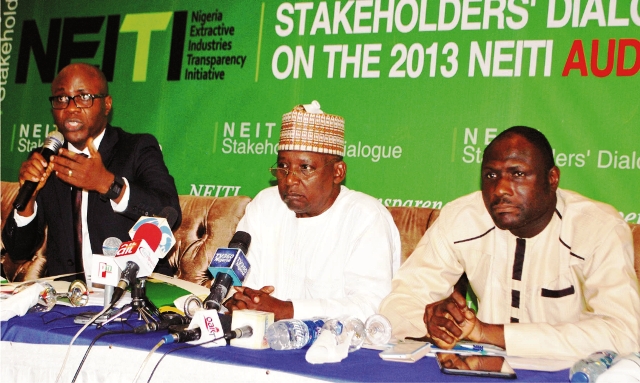Oil & Energy
FG Develops 3-Phased Road Map For Improved Power

The Federal Government
says it has developed a three-phased roadmap aimed at ensuring improved electricity generation, transmission, and distribution in the country.
The Minster of Power, Works and Housing, Mr Babatunde Fashola, stated this in Abuja lastThursday when he featured at the inaugural edition of the ‘Podium‘, a forum with the theme: “Fixing Nigeria’’.
The forum was organised by the Kuka Centre, a Nigeria-based policy research institute with the objective of ensuring that political leadership is a collaborative exercise requiring multiple governance structures at various levels
“For power, the plan is a road map of three phases, the first phase is incremental power, the second phase is steady power and the third phase is uninterrupted power.“
He said the optimum capacity of power that Nigeria had produced in its 66 years of existence was 5,074 megawatts of power
He said it was that reason government decided to design a road map for improved power supply.
According to him, the 5,074 megawatts was not enough to service the energy needs of the growing population, hence the need to get more power through incremental process.
He said the incremental process would entail the deployment of rural electrification implementation plan, adding that strategies had been drawn to ensure full implementation of the plan.
He also said the incremental process would consist of the use of other energy sources to increase power production in the country.
Fashola said the completion of some abandoned transmission projects as well as the completion of the National Integration Power Project (NIPP) were a process within the incremental phase.
According to the minister, the second phase is aimed at ensuring that every Nigerian gets adequate power.
He said that could be achieved through the use of accurate data of electricity consumers in the country.
He stated that it is important to know the number of electricity consumers in the country.
Fashola said a reliable data gathering format was required to know the energy needs of each household.
He added that part of the plan was to ensure regular maintenance and replacement of equipment used in the power value chain.
On the uninterrupted energy phase, he said the responsibility rested on consumers of electricity.
According to him, this is based on how conscious and conservative Nigerians are in the use electricity.
He said the phase would entail the adoption of an energy-saving culture by Nigerians.
“The uninterrupted energy phase, which is the third phase, is really more in our hands than in the hands of government.
“How much we now use energy, how conservative we are, how energy-conscious we are and how much we save as a matter of culture.
“It is mainly about conservation; about lifestyle choices; about the way we use energy and about the way we conserve energy.“
Oil & Energy
NCDMB Unveils $100m Equity Investment Scheme, Says Nigerian Content Hits 61% In 2025 ………As Board Plans Technology Challenge, Research and Development Fair In 2026

Oil & Energy
Power Supply Boost: FG Begins Payment Of N185bn Gas Debt

In the bid to revitalise the gas industry and stabilise power generation, President Bola Ahmed Tinubu has authorised the settlement of N185 billion in long-standing debts owed to natural gas producers.
The payment, to be executed through a royalty-offset arrangement, is expected to restore confidence among domestic and international gas suppliers who have long expressed concern about persistent indebtedness in the sector.
According to him, settling the debts is crucial to rebuilding trust between the government and gas producers, many of whom have withheld or slowed new investments due to uncertainty over payments.
Ekpo explained that improved financial stability would help revive upstream activity by accelerating exploration and production, ultimately boosting Nigeria’s gas output adding that Increased gas supply would also boost power generation and ease the long-standing electricity shortages that continue to hinder businesses across the country.
The minister noted that these gains were expected to stimulate broader economic growth, as reliable energy underpins industrialisation, job creation and competitiveness.
In his intervention, Coordinating Director of the Decade of Gas Secretariat, Ed Ubong, said the approved plan to clear gas-to-power debts sends a powerful signal of commitment from the President to address structural weaknesses across the value chain.
“This decision underlines the federal government’s determination to clear legacy liabilities and give gas producers the confidence that supplies to power generation will be honoured. It could unlock stalled projects, revive investor interest and rebuild momentum behind Nigeria’s transition to a gas-driven economy,” Ubong said.
Oil & Energy
The AI Revolution Reshaping the Global Mining Industry


